
“She Was Sitting On Nearly $500K”: Woman Gets Sued By Greedy Relatives, Makes Them Regret It
A loved one’s death can shake up your world, even if you were estranged for a long time. Especially if there’s a considerable inheritance that they left. Then you might have to start dealing with family members you haven’t seen or heard from for a long time, as they might feel entitled to some of the money.
Something of the sort happened to this woman. After the death of her estranged mother, this Redditor discovered that the woman had a considerable estate. All would have been good and well if not for distant cousins, who started demanding their share. The Redditor shared her story with fellow netizens to see what they made out of this entitled behavior.
Entitled relatives can start popping up with their requests after the passing of your loved one
Image credits: Yan Krukau / pexels (not the actual photo)
They might feel entitled to the inheritance money, and sometimes they’re even ready to do some crazy things
Image credits: RDNE Stock project / pexels (not the actual photo)
Image credits: CBS
Image credits: CoffeFanatic
The OP was curt and brief in her responses
There are some ways to collect debts from a dead person, even when there is no written agreement

Image credits: KATRIN BOLOVTSOVA / pexels (not the actual photo)
When a person passes away without a will, their estate gets divided equally among their children. This is exactly what happened in OP’s case. She describes how the court split the inheritance between her and her two siblings.
But because those two siblings were in jail, they asked the OP to handle their share of the 500k and the two houses. It’s nice to see that even with a rift in the family, the siblings were able to come to a civil agreement. The OP decided to leave both houses to each of her siblings and set up a bank account for their share of the 500k.
Everything seems to be good and dandy, doesn’t it? Well, then enter the cousins who claimed the mother owed them money. Technically, they could sue. When a person dies, their debts go to the executor (the person named in the will), in this case, the OP.
But, the author writes that the cousins’ cases got dismissed because there were no contracts in place. However, sometimes, people can try to prove the debt in other ways. People can try to present witnesses as proof that they lent money. If there was a person present when the loaning took place, the court might treat that as evidence.
Even if it was a verbal agreement, some paperwork might have left a trail behind. There might be bank statements showing transfers or cheques to the person’s bank account. And vice versa – statements from the claimant’s account that show their income and prove that they couldn’t afford to transfer huge amounts of money as gifts.
Learning how to forgive abusive parents even after their death can be a hard task
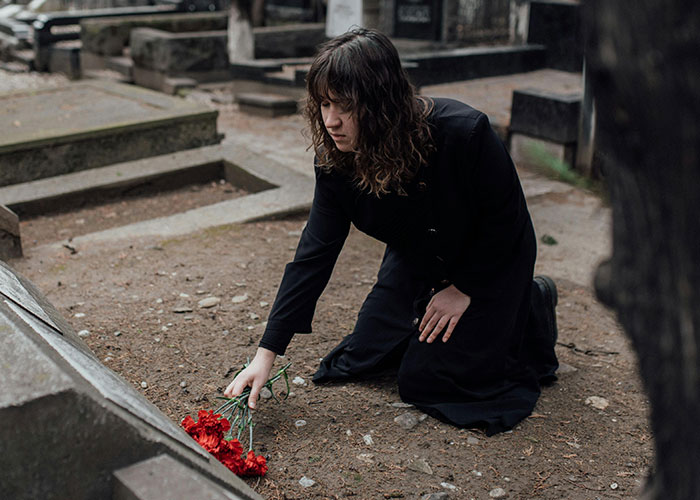
Image credits: Arina Krasnikova / pexels (not the actual photo)
The author of this story, u/CoffeFanatic, has more tales of her and her mother’s rocky relationship. In short, it seems that the relationship was incredibly toxic. The Redditor acknowledges that her mother had mental issues from “years and years” of various forms of abuse. So it’s no surprise that there’s little sentimentality in her post about the mother’s death.
A psychologist specializing in complex relationships and codependency, Dr. Brittany McGeehan, spoke about this with Pop Sugar. “Estrangement with your mother can feel like dying. It can also feel like being born again. It can feel like rage, and it can feel like a relief.”
“Those feelings can shift or become magnified when the person dies if you didn’t have the opportunity to reconnect, or you tried to reconnect, and the attempt failed.” The relationship between a mother and her child is often called the most important in our lives. So, grieving a mother can thus be especially difficult. That process is even more complex when the relationship is distant.
Dr. McGeehan explains it by likening the dead parent to a ghost. “It’s like when they’re alive, they’re already dead and haunting you, and then when they’ve died, you feel lost all over again. You’re grieving the reality and the fantasy all at once; that you didn’t have the mother you deserved.”
The American Academy of Bereavement explains it in similar terms. According to them, we grieve not so much the person but the relationship that we never had. They write, “In many cases, people grieve the death of the dream rather than the loss of the person.”
At the same time, there might be a lot of regret left after an estranged parent’s death. We might feel that there is some unfinished business or things that were unsaid when the parent was still alive, and we regret not telling them.
Other people, on the other hand, might feel relief. Experts recommend not to shy away from this emotion, even if it feels deviant. “Sometimes, when the person who mistreated you is gone, the most compassionate thing you can do is allow yourself to breathe a sigh of relief,” one funeral home writes.
Other commenters provided emotional support and gave OP some more advice
Poll Question
Thanks! Check out the results:
I have a Beelzabastărd, abusive pedò father, so I'm glad you are rid of your demon parent
If someone borrows money and then dies, that debt does not go away. It is to be paid out of the diseased's estate. Of course, the lender needs proof of some kind, which was lacking here.
I was thinking that. She keeps saying people are coming after her inheritance, but if they have any proof of money owed they don't need to sue for it. They just need to submit that proof the the lawyer in charge of the estate and it'll be taken from the estate before the inheritance is given to her. Dealt with a lot of this when my dad passed. The fact this seems to have happened months after the death may have thrown some issues in though
Load More Replies...I have a Beelzabastărd, abusive pedò father, so I'm glad you are rid of your demon parent
If someone borrows money and then dies, that debt does not go away. It is to be paid out of the diseased's estate. Of course, the lender needs proof of some kind, which was lacking here.
I was thinking that. She keeps saying people are coming after her inheritance, but if they have any proof of money owed they don't need to sue for it. They just need to submit that proof the the lawyer in charge of the estate and it'll be taken from the estate before the inheritance is given to her. Dealt with a lot of this when my dad passed. The fact this seems to have happened months after the death may have thrown some issues in though
Load More Replies...
 Dark Mode
Dark Mode 

 No fees, cancel anytime
No fees, cancel anytime 







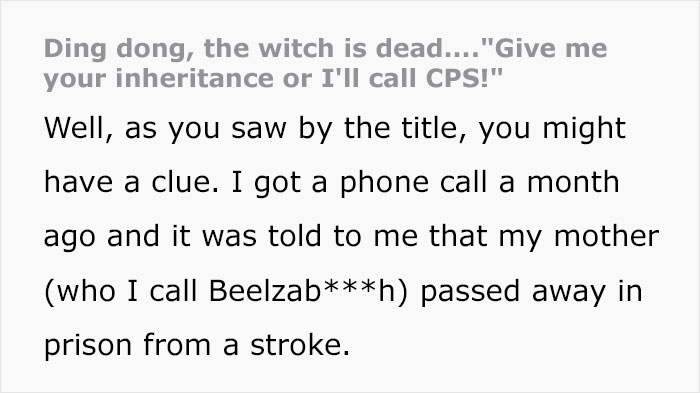
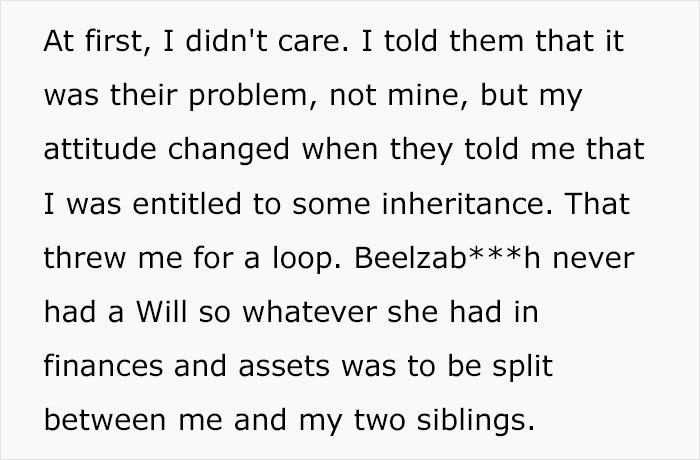

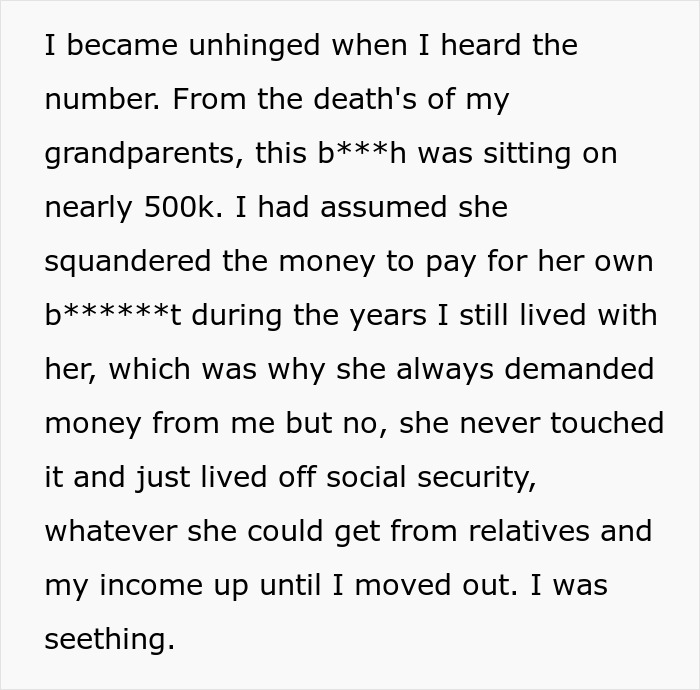
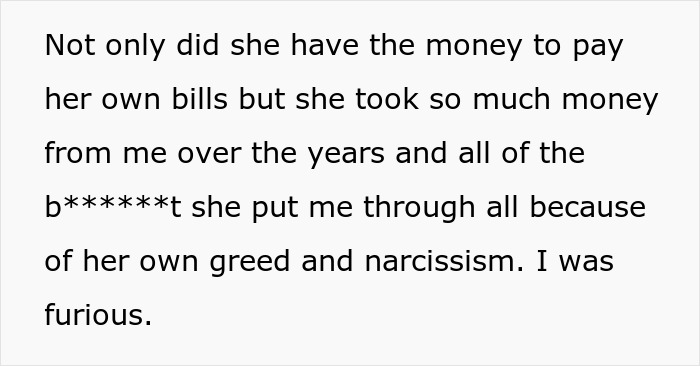
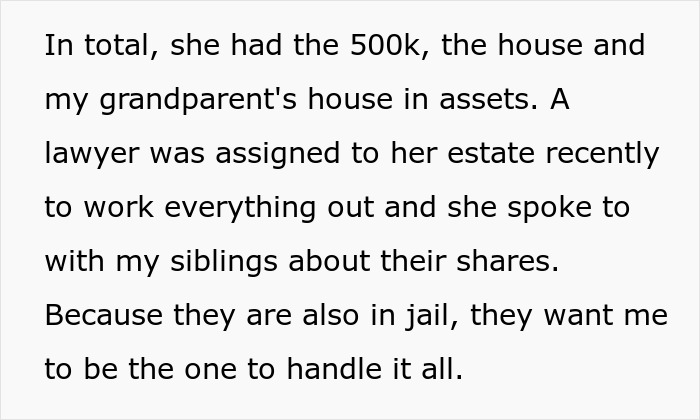
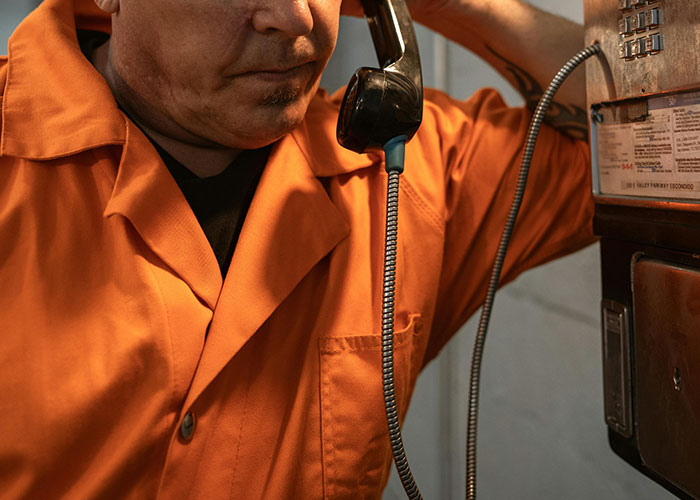
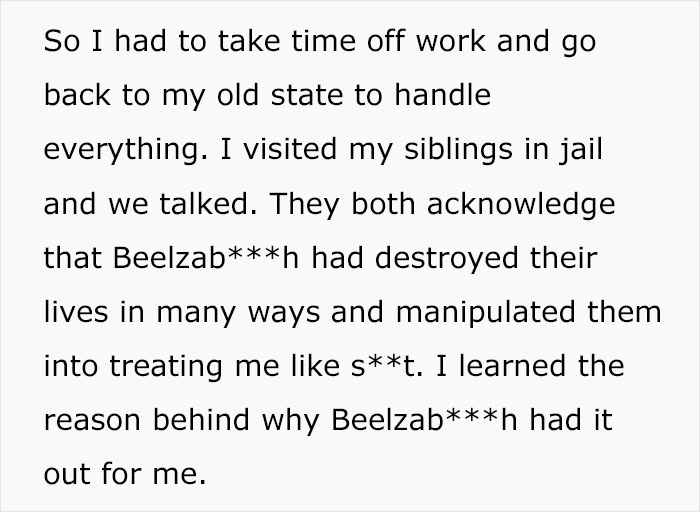
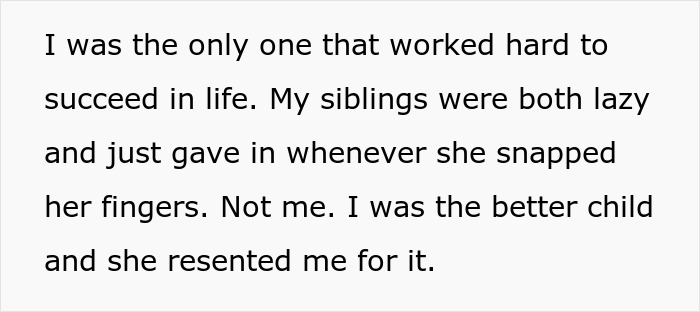

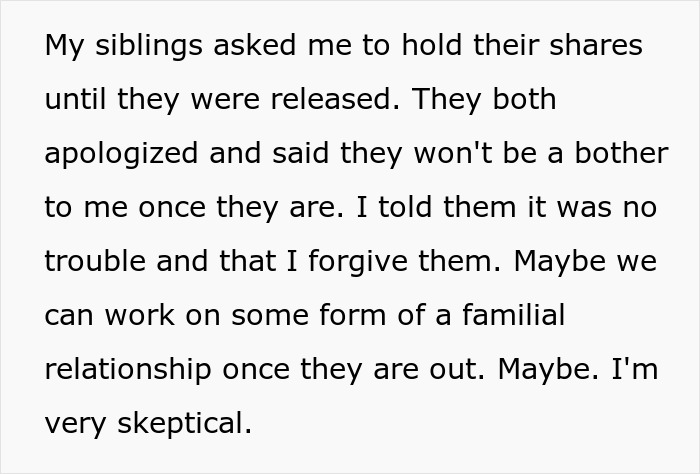

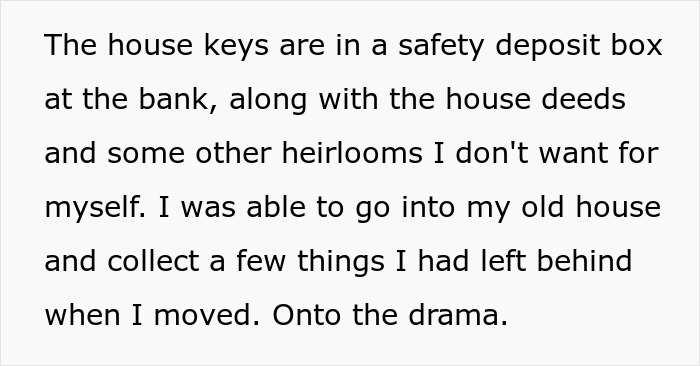
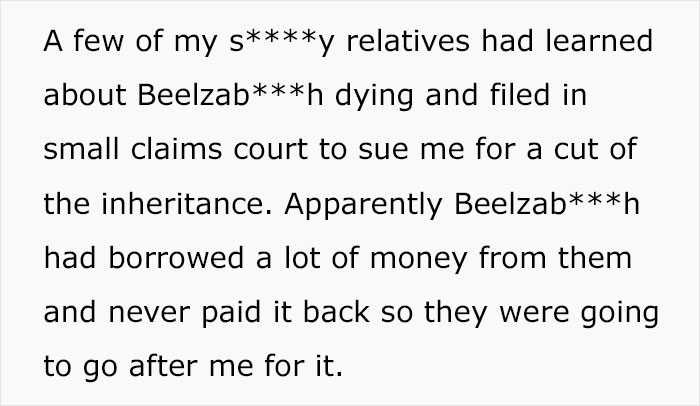
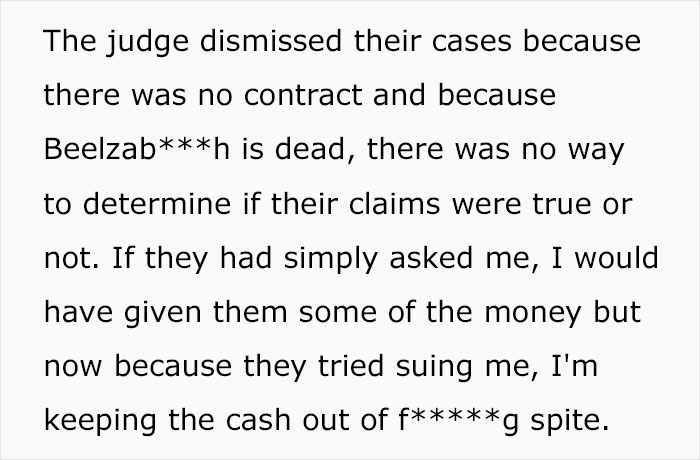
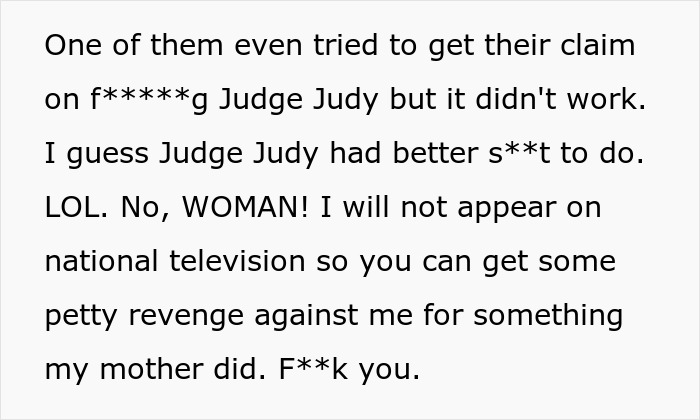

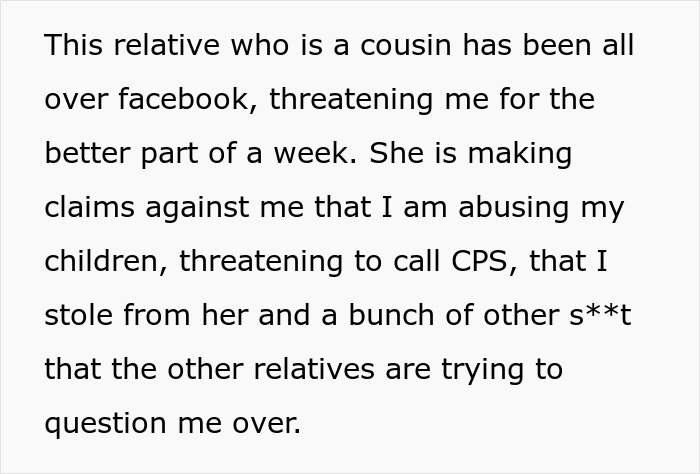
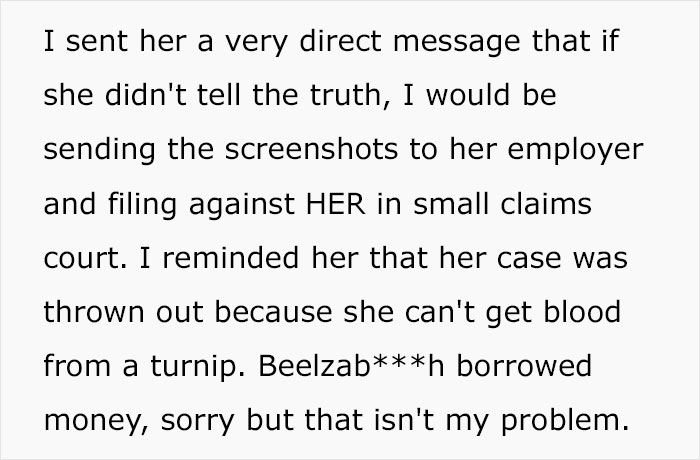
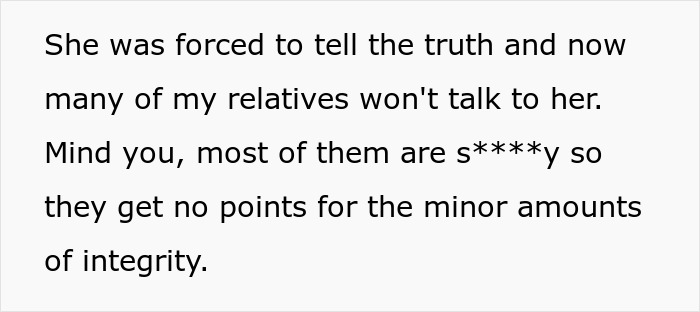


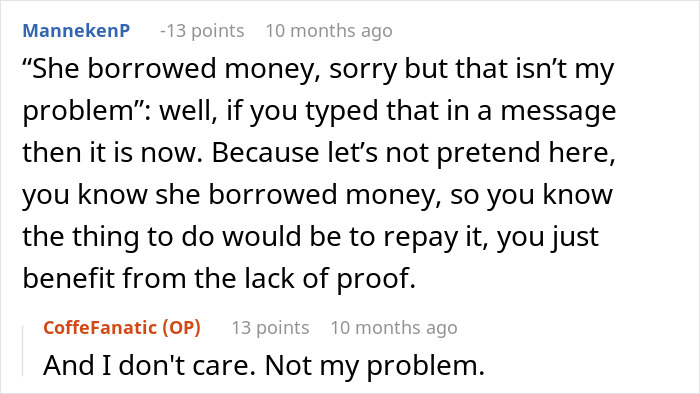





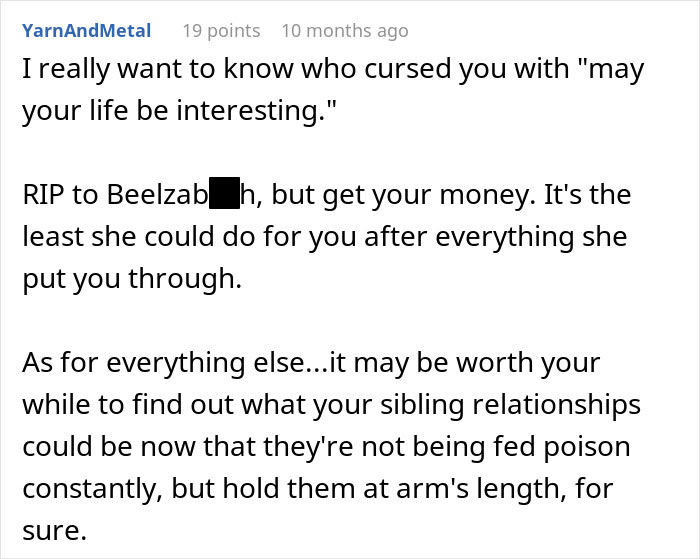


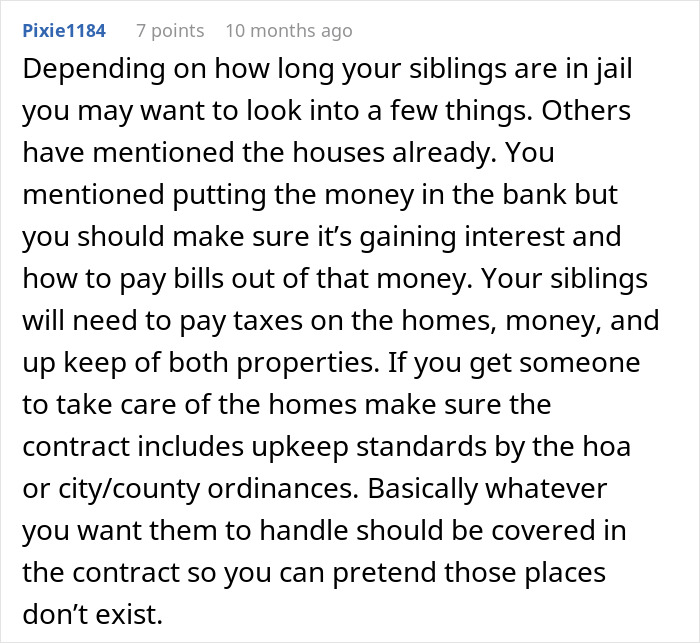














































36
41